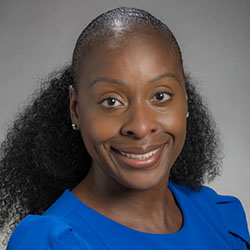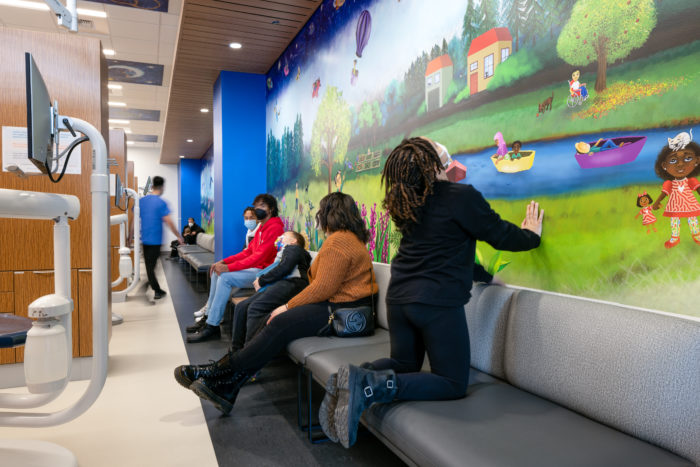A three-part series featuring the medical directors at OBCC focused on integrating care and building community together

This is part one of a three-part series. Next week, meet Dr. Kari Sims and Dr. Christen Manangan.
Dr. Kenisha Campbell is the medical director of Clinical Operations at Seattle Children’s Odessa Brown Children’s Clinic (OBCC) and is one of the three leaders dedicated to providing equitable pediatric care to current and future generations.
As medical director of OBCC’s two locations in the Central District and Othello Square, Dr. Campbell is passionate about improving the standard of care and quality of life of the broader community, especially vulnerable populations.
“I always wanted to be a doctor,” she explained. “I was inspired by my childhood pediatrician, and I followed my dream since I was 5 years old. In my third year of medical school, I found a love for adolescents and decided to pursue adolescent medicine.”
Dr. Campbell overcame adversity and grew up in a low-income home but said her background ultimately shaped her life. Never one to follow a crowd, her motto throughout her personal journey has always been, “If they can do it, so can I.”
That strength and determination has fueled and led her to where she is today.
Dr. Campbell’s career in medicine began at Washington University’s School of Medicine in St. Louis. She later completed her pediatric residency at the University of Rochester Medical Center and then went on to complete her fellowship at Cincinnati Children’s Hospital, focusing her passions on adolescent medicine. Soon, she became an attending physician at the Children’s Hospital of Philadelphia (CHOP) where she worked for nearly 11 years.
At CHOP, Dr. Campbell spearheaded and helped create an anti-racism curriculum for the entire Department of Pediatrics. She was also a co-principal investigator on a grant that developed a racial microaggression skill-based training with an anti-racism lens at the hospital.
As a clinician, she continues to dedicate her career to providing equitable healthcare services and caring for those who are underserved and marginalized.
“I’m a Black woman of Caribbean descent,” she said. “I was born in Jamaica, so I’m an immigrant to this country as well, though I’ve been here a very long time. I am innately passionate about OBCC because the patients and families we serve are from many diverse backgrounds and I can relate to many of them.”

Looking forward to the future, Dr. Campbell is hopeful about the impact OBCC will continue to make in the community.
“My primary goals are ensuring that every patient at OBCC is receiving the absolute, highest quality and compassionate care possible and that services are fully integrated with Behavioral Health and Dental,” she said. “We have a lot of resources and services, but we’re working on integrating those to try to be as effective as we can be. My focus is really going to be on quality, education and integration.”
For more than five decades, OBCC has been a vital part of the communities it serves, providing medical, dental, behavioral health and nutrition services to children of all ages regardless of a family’s ability to pay.
Resources:
- Odessa Brown Children’s Clinic (OBCC) Othello Opens its Doors in South Seattle – On the Pulse (seattlechildrens.org)
- Odessa Brown Children’s Clinic (OBCC) – Seattle Children’s (seattlechildrens.org)
- Odessa Brown Children’s Clinic Othello Tour – YouTube
- Seattle Children’s Announces New Leadership for Odessa Brown Children’s Clinic – On the Pulse (seattlechildrens.org)

